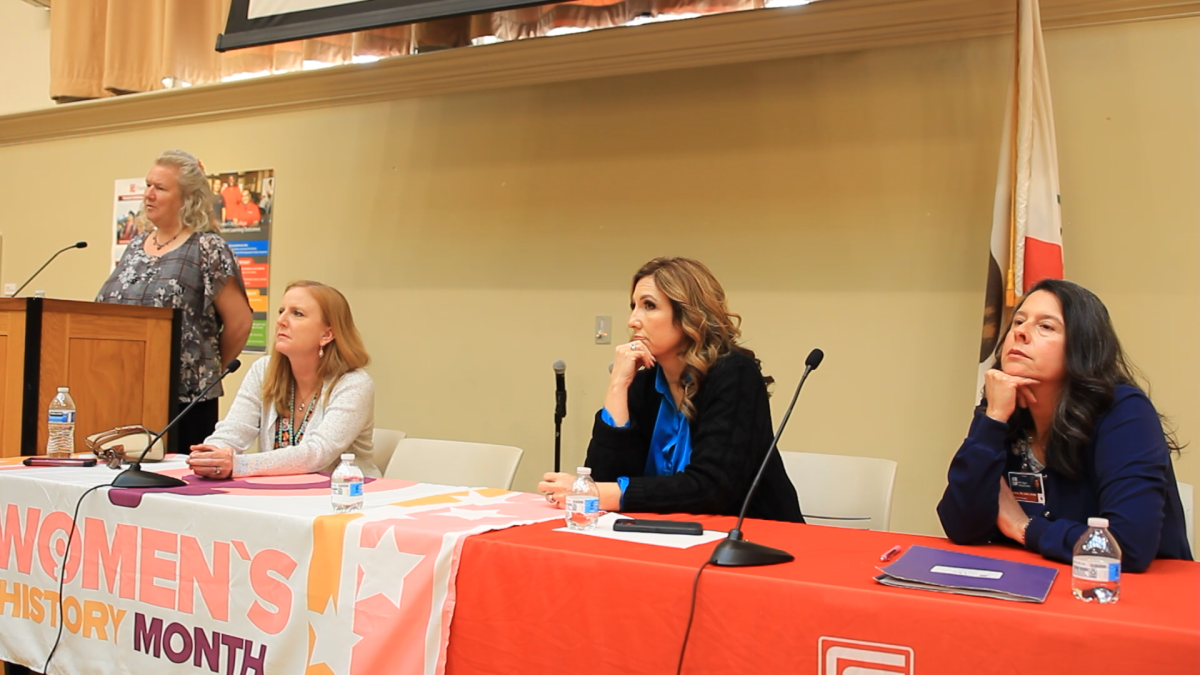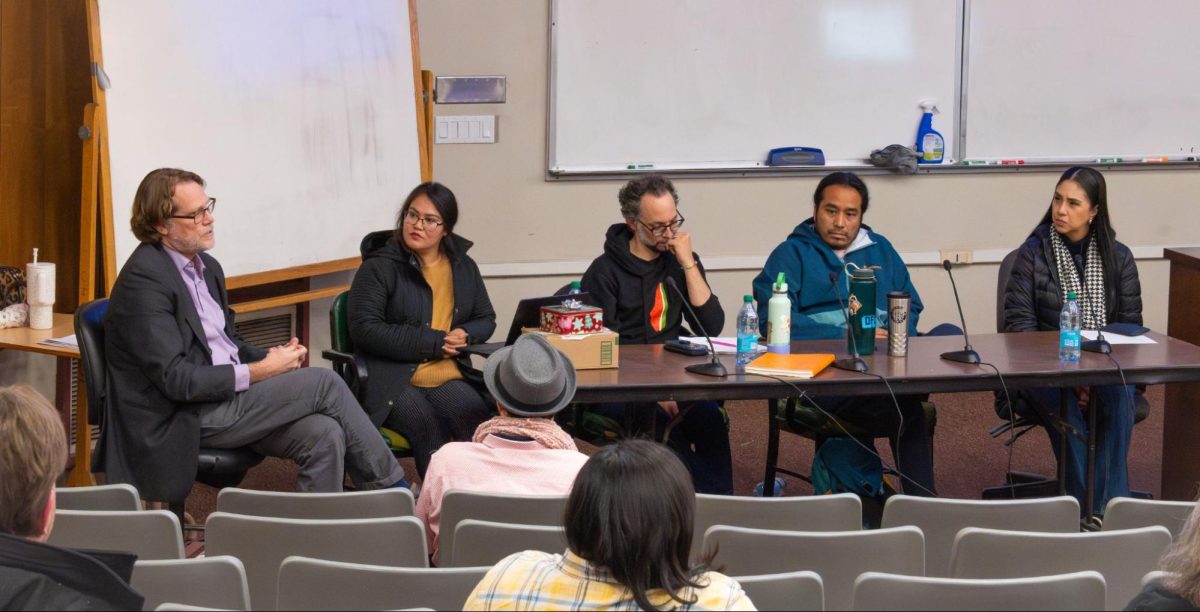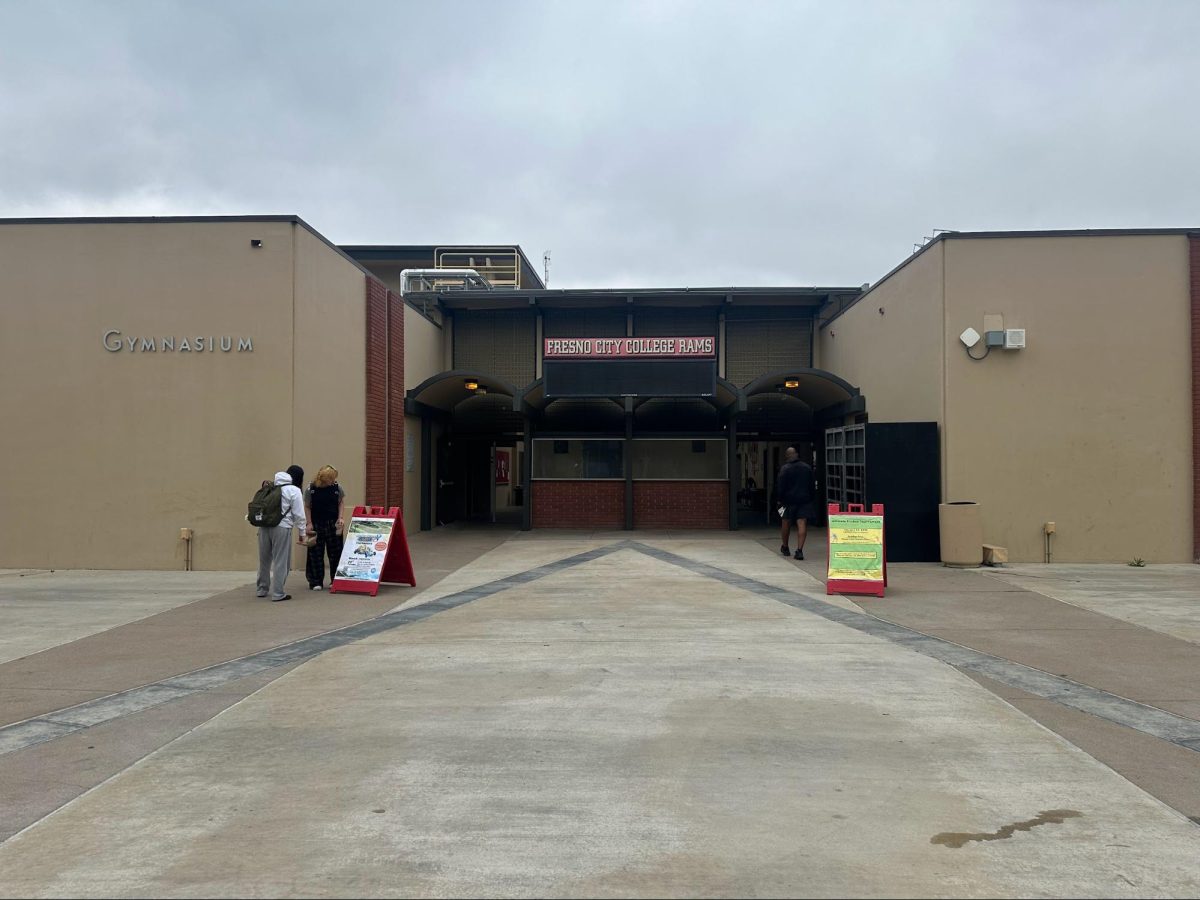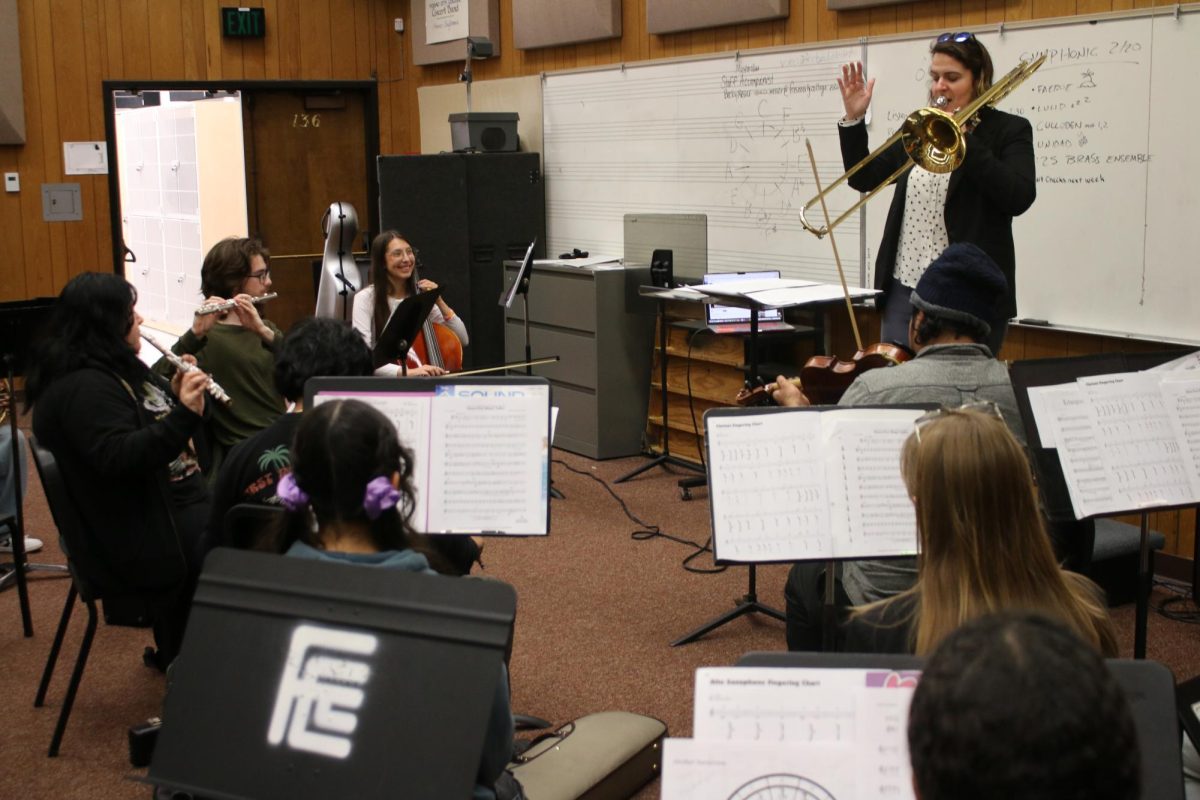Since she was a little girl in Utah, Elizabeth Swearingen has challenged the rules.
As a girl growing up in a Mormon faith, she learned to question everything, feeling that the prepackaged gender expectations were too restrictive. As a third grade student, she did the unimaginable as she stood up for a new boy at school who was being picked on by a group of students.
“I have been a social activist my whole life,” says Swearingen. “I’m a questioning person.”
When she moved to Los Banos at the age of 12, Swearingen brought along her desire to break boundaries. Consequently, she spent her early years fighting against bills such as proposition 22, which was designed to ban gay marriages.
The events of her early years would ultimately push Swearingen to pursue the study of gender, race, class and sexuality.
In fact Swearingen would take 25 years to receive her bachelor›s degree as she began at Fresno State and moved to Birmingham University, Utah and several schools in Oregon before finally settling back to Fresno.
“People would ask me why I would do that and my answer was always why wouldn’t I want to. With four children and all of the responsibilities, being able to be on a college campus was time I could use to explore ideas and relieve the mothering pressures,” said Swearingen.
As Swearingen moved on to her complete her doctoral work, she studied the performance of history and how history is used to build identity bridges. But it was also during this time that the September 11 attacks would take place and change the direction of Swearingen’s research.
“I realized that what I was looking at was identity politics. I was looking at how race, gender, and class affect the way we interact with each other. That led me to women studies which I have been teaching since,” said Swearingen who is now a full time instructor at Fresno State and an adjunct instructor at Fresno City College.
Her goal as an instructor is to make her students critical thinkers.
“I teach critical thinking in a way that really brings it home. Most students have learned passive education,” said Swearingen. “They’ve learned to fill in scantrons and they wait to be told what to do. It›s an effort to move student to more elaborate models, to make them see how we are connected to each other.”
It’s a de facto segregated nation that separates people by race, class and gender says Swearingen as she strives to help her students understand the system in which they live in.
“We continue to have this polarized political situation that leads us to believe in shame and hate,” said Swearingen.
Most recently Swearingen was at it again as she found herself in the midst of the Occupy Fresno movement. But the decision would come at a cost for Swearingen who had to spend a night in jail after being arrested while protesting.
Still Swearingen is without regret.
“My education and the words that I use have always been my source of power. I’m not a violent person,” said Swearingen. “The ability to speak, think and dialogue are really important,” she said.
Her concern however is the power structure. Swearingen says when the protestors are arrested, their right is taken away because the power structure has the keys and the sense of having a dialogue becomes irrelevant.
“I’m very alarmed by the militarization that I see overtaking the police department,” said Swearingen. “There is no reason for someone like me, who has never been arrested before, to be hand cuffed by so many county sheriffs and spend the night in the county jail. I’ve toured the sheriff’s department several times but I have never been on the other side to understand the dehumanization that happens to people that are arrested.”
Though her night in jail was unpleasant, Swearingen adds that she now has a better appreciation for those who are willing to stand up and get arrested night after night. “I can’t imagine the level of trauma they are enthralling as a result of that,” said Swearingen.
As for the general public, Swearingen hopes they get a better understanding of the Occupy Movement. She says it’s about a clash of power and challenging systems that have become oppressive.
“I understand a lot of people think it’s a cop-out to society. But from the inside, there’s a very different picture that emerges. Most of the people participating are employed, are students and are seeking answers to profound questions about how to create a sustainable and secure world,” said Swearingen. “The participatory democracy, the rebuilding of communities in order to challenge how we think about life, government, and community is the core.”
In the classroom, Swearingen teaches a lot of the principles Occupy Fresno embodies. She strives to help her students understand how it’s necessary to have an insider’s perspective rather than just an outsider’s perspective for the movement to have any validity. “It takes time to immerse yourself in the culture and say now I can understand. There are people interested in attacking it instead of understanding it. That’s unfortunate for our country, for our sense of learning and for the sense of what’s truly an open mind.” said Swearingen.
Despite the struggle, Swearingen is thrilled to see the Occupy movement taking root around the world.
She encourages her students to take control of their own mind and to not allow the media and political spin to manipulate their thinking.
“This movement is very organic,” said Swearingen. “Exactly where it’s going to manifest itself, I’m not sure. But my intention is to continue to be supportive and to change what I can.”
Categories:
Women’s Studies Instructor Encourages Activism
Story By: Tomas Kassahun, Rampage Reporter
December 8, 2011
Story continues below advertisement
0
More to Discover






